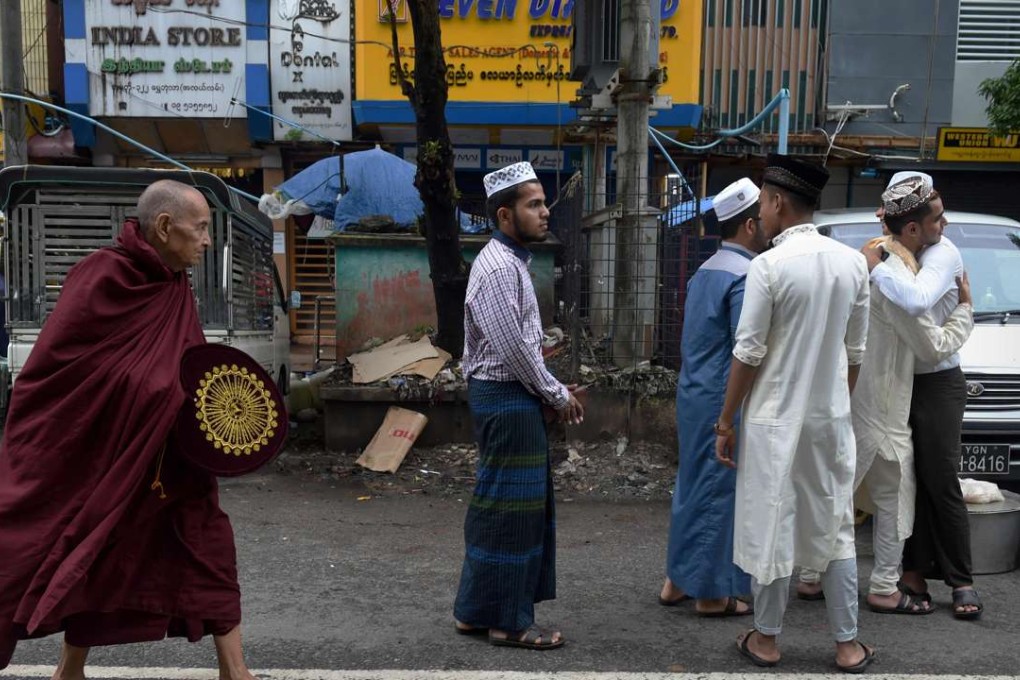Myanmar’s most influential Buddhist monks distance themselves from hardline Ma Ba Tha sect
Ma Ba Tha emerged as potent anti-Muslim political force under the former military-backed government

The body representing Myanmar’s top monks has distanced itself from Buddhist hardliners behind an incendiary anti-Muslim campaign blamed for a surge in sectarian violence across the country.
The Sangha Maha Nayaka Committee, which represents the upper echelons of the clergy in the overwhelmingly Buddhist country, issued a statement late on Tuesday saying it has never endorsed the ultra-nationalist “Ma Ba Tha”.
The Ma Ba Tha organisation is not included under the basic rules, procedures ... and instructions of the Sangha organisation
The Ma Ba Tha is a noisy monk-led group that has been at the forefront of anti-Muslim protests in Myanmar in the three years since it was founded.
It recently said it was established under Sangha rules, a claim refuted by the country’s top monks, putting clear water between the mainstream Buddhist clergy and the hardline group for the first time.
“The Ma Ba Tha organisation is not included under the basic rules, procedures ... and instructions of the Sangha organisation,” the Sangha committee said in its statement.
“Starting from the first Sangha summit in 1980 until the fifth Sangha summit in 2014, no Sangha meeting has acknowledged or formed the Ma Ba Tha – and it has never used the term Ma Ba Tha.”
The statement came hours ahead of a two-day gathering of around 50 of Myanmar’s top monks in a meeting room inside a man-made cave on the outskirts of Yangon.